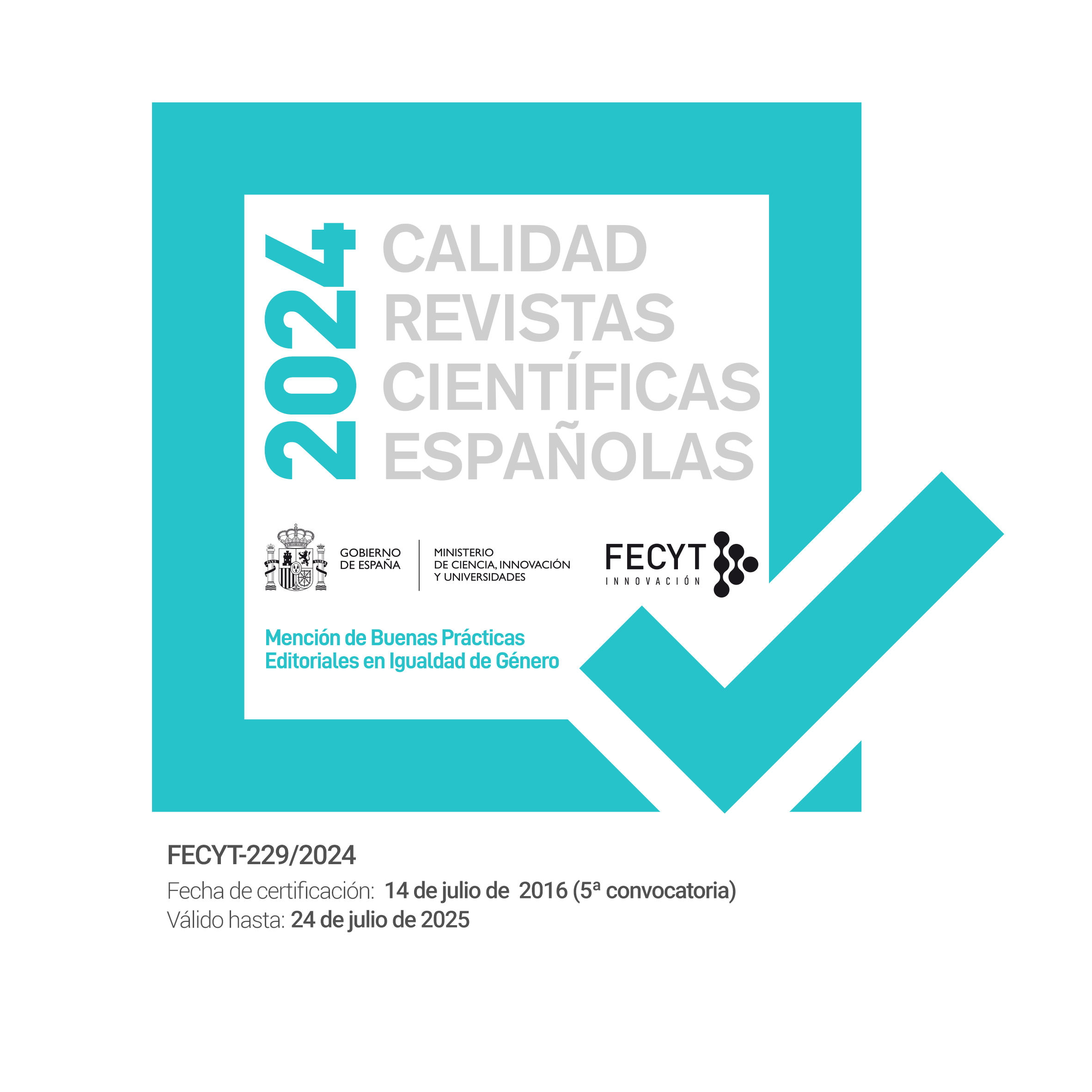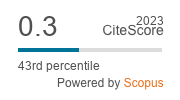The supply of flour: a commercial proposal from New Orleans to the Gulf of Mexico, 1788-1799
Keywords:
intendancy, flour, trade networks, New Orleans, CubaAbstract
Flour, considered a staple good for the population, serves as a thread to unveil proposals for free trade emanating from the Hispanic-American mainland territories along the north coast of the Gulf of Mexico to the detriment of Spanish trade organization after the Bourbon administrative reforms of the late 18th century. This study is based on the request for commercial autonomy of a continental region under the control of the Intendancy of La Havana. The inability of Spain to consolidate its own trade and supply networks favored the penetration of foreign traders, especially in times of warReferences
AMORES, Juan (2000). Cuba en la época de Ezpeleta. Pamplona: EUNSA.
BARBIER, Jacques (1986). «Imperial policy towards the part of Veracruz, 1788-1808: the struggle between Madrid, Cádiz and Havana interests». En: JACOBSEN, N., y PUHLE, H. J. (eds.). The economics of México and Peru during the Late Colonial Period, 1760-1810. Berlín: Coloquium Verlag, págs. 240-251.
BARBIER, Jacques, y KUETHE, Allan (1984). The North American Role in the Spanish Imperial Economy, 1760-1819. Manchester: Manchester University Press.
BLANCHET, Emilio (1866). Compendio de la historia de Cuba. Matanzas: Imprenta de la Aurora del Yumurí, José Curbelo y Hermanos.
CANUDAS, Enrique (2005). Las venas de plata en la historia de México. Síntesis de Historia Económica siglo XIX. Tabasco: Universidad Juárez Autónoma de Tabasco –Utopía, vol. II.
CAREY, James (ed.) (1800). Observations on the commerce of Spain with their colonies, in time of war. By a Spaniard in Philadelphia. Filadelfia: Printed by James Carey.
CHRISTELLOW, Allan (1942). «Contraband Trade between Jamaica and the Spanish Main and the free Post Act of 1766». Hispanic American Historical Review, Durham (EE. UU.), vol. 22, págs. 332-336.
CUENCA, Javier (1981). «Statistics of Spain’s Colonial Trade, 1792-1820, Consular Duties, Cargo Inventories and Balances of Trade». Hispanic American Historical Review, Durham (EE. UU.), núm. 61, agosto, págs. 391-296.
CUMMINS, Light Townsend, (1991). Spanish Observers and the American Revolution, 1775-1783. Baton Rouge: Louisiana State University Press.
CUNNIGHAM, Charles (1919). «Financial Reports relating to Louisiana, 1766-1788». The Mississippi Valley Historical Review, Oxford, vol. 6, núm. 3, págs. 381-397.
ESCUDERO, José (2001). Los orígenes del Consejo de Ministros. La Junta Suprema de Estado. Madrid: Ed. Complutense.
FABER, Eberhard (2016). Building the Land of Dreams: New Orleans and the Transformation of Early America. Princeton: Princeton University Press.
FERNÁNDEZ DE PINEDO, Nadia (2001). «Commercial relations between USA and Cuba in time of peace and war, 1803-1807». Illes i Imperis, Barcelona, núm. 4, págs. 5-24.
FINUCANE, Adrian (2016). The Temptations of Trade. Britain, Spain and the Struggle for Empire. Filadelfia: University of Pennsylvania Press.
FISHER, John (1992). Relaciones económicas entre España y América hasta la independencia. Madrid: Mapfre.
FONTANA, Josep (1982). La economía española al Final del Antiguo Régimen III, comercio y colonias. Madrid: Alianza.
FRADERA, Josep (2015). La nación imperial (1750-1918). Barcelona: Edhasa, vol. I.
FRIEDLAENDER, Heinrich (1978). Historia Económica de Cuba. La Habana: Editorial Ciencias Sociales.
GILDAS, Bernard (1972). Le Secrétariat d’État et le Conseil Espagnol des Indes (1700-1808). Ginebra-París: Librérie Droz.
HAMMETT, Brian (1985). La política española en una época revolucionaria, 1790-1820. México: Fondo de Cultura Económica.
HERR, Richard (1988). España y la revolución del siglo XVIII. Madrid: Aguilar.
HOLMES, Jack (1962). «Some Economic Problems of Spanish Governors of Louisiana». Hispanic American Historical Review, Durham (EE. UU.), vol. 42, núm. 4, págs. 521-543.
JOHNSON, Sherry (2002). «Climate, community and commerce among Florida, Cuba and the Atlantic World, 1784-1800». The Florida Historical Quarterly, Melbourne (Florida), vol. 80, núm. 4, primavera, págs. 455-482.
KUETHE, Allan, y BLAISDELL, Lowell (1991). «French influence and the origins of Bourbon Colonial Reorganization». Hispanic American Historical Review, Durham (EE. UU.), vol. 71, núm. 3, págs. 579- 607.
LE RIVEREND, Julio (1981). Historia económica de Cuba. La Habana: Ed. Pueblo y Educación.
MORENO LÁZARO, Javier (1999). Los empresarios harineros castellanos, 1765-1913. Madrid: Fundación Empresa Pública, Programa de Historia Económica.
NARRET, David (2015). Adventurism and Empire. The Struggle for Mastery in the Louisiana-Florida Borderlands, 1762-1803. Chapel Hill: The University of North Carolina Press.
PEZUELA, Jacobo de la (1842). Ensayo histórico de la Isla de Cuba. Nueva York: Imprenta española de R. Rafael.
PORTUONDO, Fernando (1965). Historia de Cuba. La Habana: Ed. Pueblo y Educación.
POWELL, Lawrence (2012). The Accidental City. Improvising New Orleans. Cambridge (Massachusetts) – London: Harvard University Press.
SALVUCCI, Linda (2005). «Atlantic Intersections: Early American Commerce and the Rise of the Spanish West Indies (Cuba)». The Business History Review, Oxford, vol. 79, núm. 4, invierno, págs. 781-809.
SHEPHERD, William (1904). «Wilkinson and the beginnings of the spanish conspiracy». The Hispanic American Historical Review, Durham (EE. UU.), vol. 9, núm. 3 (abril), págs. 490-506.
TROGDON, Jo Ann (2015). The unknown travels and Dubious pursuits of William Clark. Columbia: University of Missouri Press.
WIDMER SENNHAUSER, Rudolf (1996). «Veracruz y el comercio de harinas en el Caribe español, 1760-1830». Estudios de Historia Social y Económica de América, Alcalá de Henares, núm. 13, págs. 102-122.
WOODWARD, Ralph (2003). «Spanish Commercial Policy in Louisiana, 1763-1803». Louisiana History: The Journal of the Louisiana Historical Association, Lafayette, vol. 44, primavera, págs. 133-164.
Downloads
Published
Issue
Section
License
The author publishing in this journal agrees to the following terms.
a. Author retains the copyright and grants the journal the right of first publication of the work.
b. Texts will be disseminated under the Creative Commons Attribution-NonCommercial-NoDerivative licence, which allows the work to be shared with third parties, provided that they acknowledge authorship, their initial publication in this journal, and the terms of the licence. It is not permitted to make commercial use of the work nor to distribute derivative works without the copyright holder's explicit permission.





